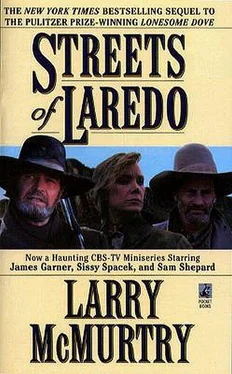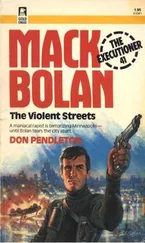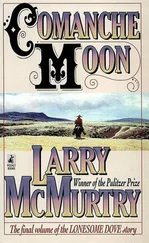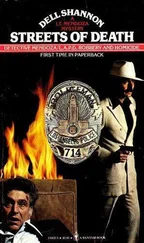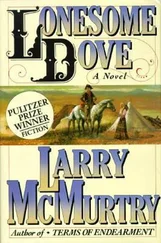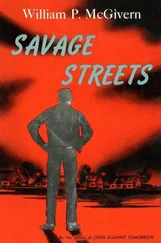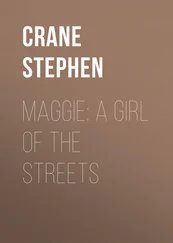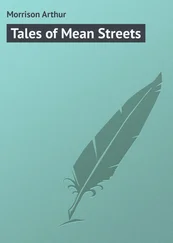If that was the case, then at least one of the telegrams might be informing him that he was fired.
In that event, he wouldn't have to worry about Colonel Terry's fiery temper anymore, but he would certainly have to worry about Katie's.
She did not like change, Katie. He had a job and she expected him to keep it. News that he was fired would undoubtedly cause her temper to flare up.
It had been nippy in Amarillo. Winter was supposed to be nippy, and Brookshire hadn't minded. Then in San Antonio, which was still in the same state, it had been hot, mighty hot.
He didn't suppose it could get any hotter than it had been in San Antonio, but after a few hours in Laredo, he was forced to admit an error. Laredo, which was in the same state, was hotter still.
Their arrival in Laredo had been unpleasant on other grounds, too. Bolivar had begun to cry and wail. When they crossed the river into Nuevo Laredo, Bolivar knew that the Captain was about to leave him.
"No, capit@an, no!" he pleaded. "I want to go. I can ride and shoot." "Yes, and you have shot," Call reminded him.
"You shot our best mule, and for no reason." Bolivar had a vague memory of shooting a mule. He had shot it in the stomach with a big gun. Now, though, he couldn't remember why.
Perhaps the mule had tried to bite him; mules were known to bite.
"I thought I was shooting the devil," Bolivar said, in hopes of convincing the Captain that shooting the mule had been an act prompted by forces stronger than himself.
"No, you thought it was an Indian," Call said. "You have to stay here, Bol--you might get hurt if I take you. I'll be back for you when I head home." Soon he was handing money to a small, tired-looking Mexican woman who was not unlike the woman he had given money to in San Antonio. Brookshire decided the old man must have been a superlative cook, for the Captain to keep supporting him all these years.
Bolivar didn't appreciate the fact that the Captain had another decent family to place him with, though. He wanted to ride the river with the Captain, to ride and shoot, kill or be killed. At the thought that he would have to stay with the woman and the children again, he began to weep, and he was still weeping when the Captain and Brookshire rode off.
"Be quiet, you're old, you need to rest," Juanita said. She was not happy to see the old man. He caused many problems. But she needed the money. He was not a bad old man; just noisy, and sometimes a little violent to himself.
Brookshire stumbled out of the telegraph office, pale with shock, and took the seven telegrams to Captain Call, who was talking with the local sheriff, a young man named Jekyll, who sported a walrus mustache. Call was trying to find out the local gossip about the Garza boy.
To the surprise of both Call and the sheriff, Brookshire simply thrust the seven telegrams into Call's hands.
"Would you read them, please? I'm too worried," he said.
Call led Brookshire a little distance down the road, to a shade tree, before opening the first of the telegrams. He knew Sheriff Jekyll was dead curious about the information they contained, but he preferred to take the cautious, rather than the polite, approach. The less information got spread around, the better.
"Well, it's bad," Call said, when he had read all seven telegrams. "He's done it again, and somebody else has started doing it too." He gave Brookshire the telegrams, and Brookshire read them quickly. Three more trains had been struck.
"Three! Three, my God!" Brookshire exclaimed. Even one more train robbery would have been a calamity, but three amounted almost to a world catastrophe. News that an earthquake had leveled New York City could not have been more unwelcome.
"I don't see anything about a second robber --where's that?" Brookshire asked.
"The telegrams don't say it--it's the distances that say it," Call said. "According to this, a train was robbed in Van Horn one afternoon and another in Deming, New Mexico, the next morning. Nobody's swift enough to cover that distance in twelve hours." Call methodically arranged the telegrams in order and read Brookshire the totals: two crew and three passengers killed near Van Horn, little money taken; two crew and two passengers killed near Falfurrias, little money taken; and three crew and four passengers killed near Deming, another military payroll lost.
"O Lord, spare us," Brookshire said.
"That's another payroll lost--the army will be mad, for sure." "It's the passengers the Lord should have spared," Call said. "That's sixteen lives lost, in a little over a week, Mr. Brookshire. I fought Indians for fifteen years on the frontier and I lost six men. This is not a robber we're after, it's a killer--or two killers, it looks like now." "If there's two robbers, or two killers, who's the other one?" Brookshire asked.
"I don't know," Call said.
"Well, one of them's a robber, too," Brookshire said. "He's taken three payrolls and lots of trinkets." "Yes, he takes the money," Call said.
"Or they take the money, because it's there. But the killings worry me more. How many were killed before I took this job?" Brookshire tried to think. Three robberies had occurred before he left New York; another occurred while he was in Chicago. The one with the sheep wasn't on Colonel Terry's railroad, so Brookshire didn't count it, though he supposed he ought to count the dead men. It seemed to him that there had been three or four deaths each time, but he wasn't sure. Six had died on the sheep train, and now there were another sixteen dead. The count was in the thirties somewhere, so there was no denying it was a startling death toll. His regiment had only lost forty men, during the entire Civil War. Of course, his regiment had not been in the thickest of the action; still, the War had been carnage from start to finish and it was a shock to realize that one Mexican boy, in the course of a few months, had taken more lives than his regiment had lost in the War.
"I doubt Wesley Hardin has killed that many people yet," Call said. "And Wesley Hardin is a bad one." Near the livery stable, where Call had encountered Sheriff Jekyll, a large log had been rolled into the shade, to make a sitting place. Two old men with only a few teeth between them were sitting on it, whittling with small pocketknives. Call went over and sat on the log too. He was annoyed with himself for not having taken the casualty figures more seriously, sooner. The numbers had been available, but numbers were usually exaggerated. He had fought several fierce battles, with both Indians and Mexicans, in which no one was killed on either side. Usually there were wounds, but fighting men were not easily killed. In the War, of course, the great engagements had left hundreds or even thousands dead, but frontier fighting was of a different order.
In the worst Indian fight he had engaged in, he had only been able to say positively that two Indians were killed--he buried the two himself.
Call rarely saw a newspaper and had not followed the Garza boy's murdering that closely.
He had assumed that the figures were exaggerated.
Let one or two people get killed in a feud or a ruckus, and as the story went up and down the trail, the figure would swell until it became twenty or thirty. Before the Garza boy showed up, the most notorious outlaw in the West was Billy the Kid, who was said to have killed a man for every year of his life, when he was nineteen. But Dish Boggett, the gifted Hat Creek cowboy who was now selling hardware in Lincoln County, New Mexico, where the troubles occurred, assured Call that the boy had only killed four or five men. Goodnight, who had been in Lincoln County while the range war was going on, agreed with that figure.
If the information in the telegrams was true, Joey Garza had quickly eclipsed Billy the Kid as a killer.
Читать дальше
